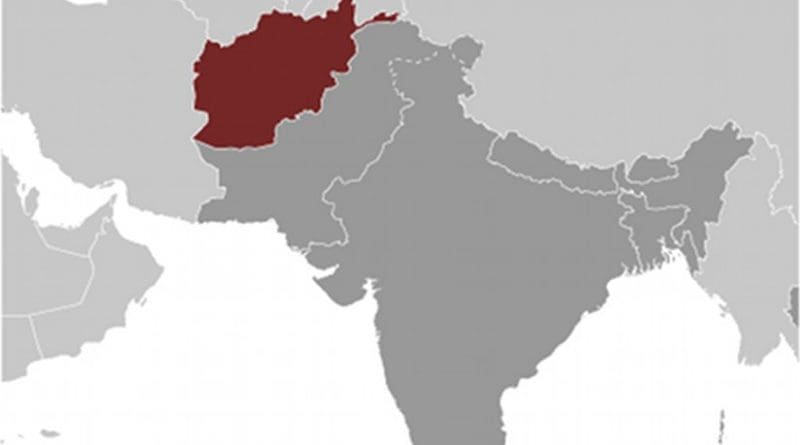Who Is Winning The Spin War In Afghanistan? – Analysis
By Akmal Dawi
Gen. Dostum, one of Afghanistan’s most feared warlords, used to spend dearly buying deadly weapons and paying militia fighters in his brutal but inconclusive rampage to maintain maximum power a decade ago. Over the last few years, however, Dostum has invested millions in setting up TV and radio stations, websites, and even hiring spin doctors to manage his Twitter account and Facebook pages.
His one-time Hazara rival warlord, Mohammad Muhaqiq, has been doing exactly the same.
With the exception of Mullah Omar, the Taliban’s reclusive leader, almost every major warlord has a private TV station in Afghanistan. Had his websites not been hacked and his mobile radio stations shut consistently, even Mullah Omar could have had a TV channel as recently released videos of Taliban attacks indicate. Omar banned TV during his repressive reign in the late 1990s but his Quetta Shura now fully understands the power of moving images.
The Afghan warlords used to be surrounded by staunch fighters but they are now mostly accompanied by entourages of hired spin doctors, translators and photographers. Even some journalists have been tempted to work for the competitive salaries the warlords offer.
The Afghan warlords have not been weaned off from criminality by choice, but by a forceful international agenda to pacify politics in Afghanistan and a dramatic change in public access to electronic media.
Washing away crimes
Hours after the NY Times published an article on 23 July naming several big warlords allegedly responsible for egregious human rights violations in the past three decades, Gen Dostum’s media enterprise launched a robust counter campaign on TV, on Radio and online.
People who watched, read and listened to Dostum’s media outlets hardly knew anything about the facts presented in the NY Times story but the sugarcoated propaganda that Dostum is a national hero and that foreigners try to besmirch his benevolent reputation at the behest of the corrupt Karzai regime.
This is exactly what the warlords want the public to hear and read about them.
Using tribal, linguistic and religious metaphors the warlord media enterprises sell their patrons as heroes to their respective audiences. In their promotional videos which often appear on YouTube, the Taliban’s suicide squads are portrayed as holy and freedom fighters than brainwashed murderers.
While not all Afghans watch TV channels or listen to radio stations sponsored by the warlords, viewers of some ethnic groups may tune in to these mediums at least for specific contents of interest i.e. music, analysis, dramas etc.
At a national level, the warlords’ media outlets compete with the State-sponsored Radio & Television Afghanistan (RTA) and other private and commercial outlets such as TV1 and Tolo TV.
Generous donors
When Saad Mushini, the so-called Rupert Murdoch of Afghanistan, and his brothers wanted to set up a media venture in Afghanistan in 2002, they just had US$300,000. The Muhsini brothers now own a sprawling media empire which earned them $20 million last year, according to a report by the Center for International Media Assistance. Muhsinis’ Afghan dream came true owing to millions of U.S. funding and unwavering political support.
The U.S. is not the only generous donor to Afghanistan’s mushrooming media companies. Iran reportedly has many media outlets at its payroll. Pakistan too supports its friendly broadcasters and publishers.
Showered with foreign aid money in almost every sector, Afghanistan has no clear laws to regulate foreign money flow to the Afghan media. As a result, accountability and transparency are largely absent. It is unclear how much of the $20 million the Muhsinis profited in 2011 was legitimate income and how much of it was paid in their lawful tax duties to Afghanistan.
Donor money, however, does not necessarily translate into political allegiance. While the U.S. pays dollars to Afghan media Iran gives them language, culture and strategic objectivity. U.S. donors might be pleased to watch colorful screens of the funded television channels but Iran influences their content – which one is more important?
As U.S.-NATO prepares to end its combat mission in Afghanistan and withdraw forces by 2014, funding to Afghan media companies will surely dry down. The International Security Assistance Force (ISAF) sponsored and managed Voice of Azadi radio will have to shut and ISAF’s lucrative commercials to other media outlets will come to an end.
This will impact the financing of some major media entities such as the Moby Group which has bulky contracts with ISAF for lengthy commercials and other public relations content production and broadcasting.
Post-2014 media
Twelve years ago, and before then for decades, Afghans overwhelmingly relied on international broadcasting for Afghanistan for news and current affairs. The post-Taliban boom in domestic media has not only transformed the media landscape but has largely shifted the politics of information management.
It would be difficult to foresee a complete relapse to pre 2001 settings although funding to Afghan media is set to dissipate in the next few years.
If not dollars, money will certainly flow into the coffers of at least some prominent media companies. However, a media environment largely dependent on warlord and/or foreign donor pockets could not be a genuine force to protect and promote Afghanistan’s nascent constitutional democracy.
In 2012 Afghan journalists brought home at least two prestigious awards – a first-ever Pulitzer in photojournalism and a Knight award in quality journalism.
These awards precede and proceed over tremendous sacrifices made by Afghan journalists over the last one decade. Several women and women lost their lives at the hands of warring parties or criminal gangs while working as reporters or media activists in 2005-2011. Many others, particularly female journalists, constantly face threats, discrimination and other derogatory social restrictions.
Who will reap the new journalist talents in Afghanistan? I hope neither the wealthy and powerful warlords nor other malicious external actors.
Akmal Dawi is an Afghan journalist currently based in Washington, DC. He tweets from: @kabul3

